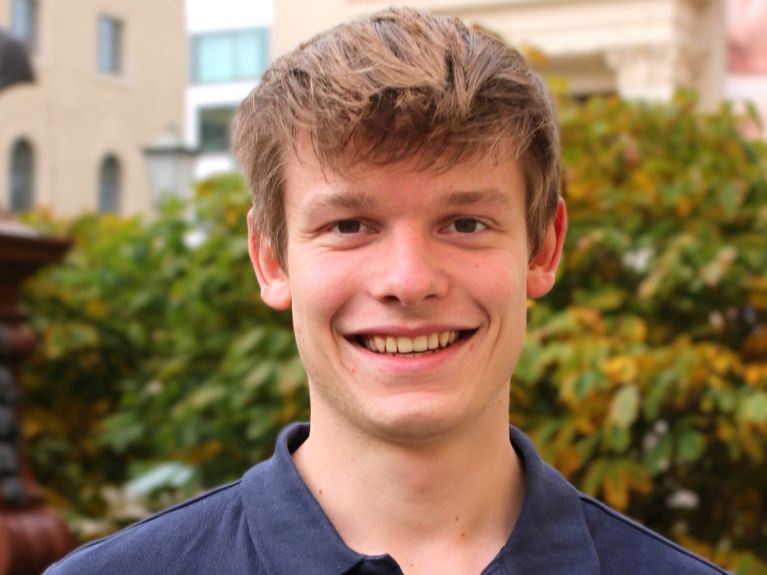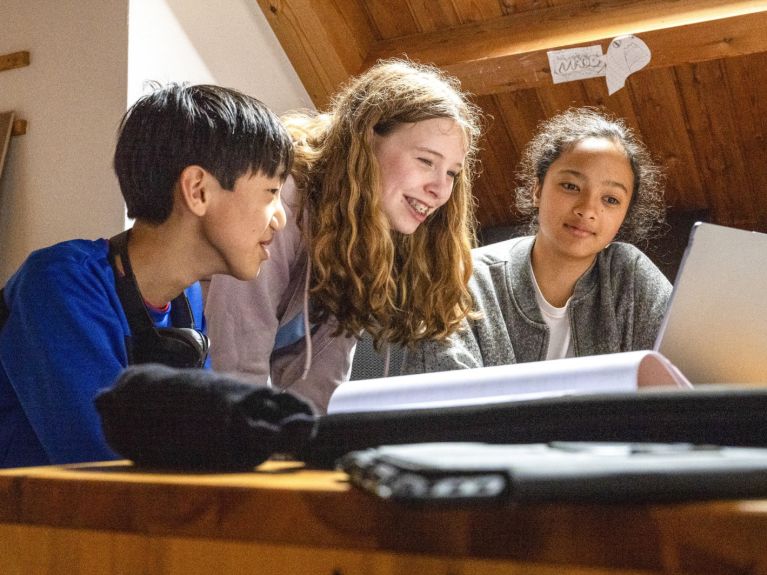Young people have their say
From student councils to parliaments – children and young people in Germany have a wide range of opportunities to get actively involved in politics.

Overcooked noodles, bland sauces, long faces: it was the miserable food at the school cafeteria that prompted Fabian Schön to take action. “Something simply had to happen. And it worked – we were able to make a difference,” recalls the 17-year-old secondary school student from Neuenhagen in Brandenburg. Together with others who felt the same way, he spoke to the school administration and managed to get the school to hire a better caterer. Passionately involved in the student council for several years now, Fabian became General Secretary of the German Pupils’ Conference (BSK) in August 2024. Here, school pupils from all over Germany discuss a wide range of topics – from education policy to digitalisation. One issue is particularly close to Fabian’s heart: mental health. “It’s extremely important for people to feel at ease at school and enjoy learning in an appreciative atmosphere,” he says. This is why he is campaigning in the BSK for more social workers and psychologists to be employed at schools.

Active involvement? You bet!
In addition to student councils, children and young people in Germany have a wide range of other opportunities to make their voices heard. In almost all towns and cities there are youth parliaments that get involved in political decision-making – whether in connection with leisure facilities such as skate parks and youth centres, the planning of public transport, or broader issues such as climate action and inclusion. There are also events, conferences and campaigns that are organised by children’s and youth associations, clubs and initiatives. Every year in May, for example, around 300 young people come together to attend the Youth Engagement Congress in Berlin. And last but not least, the youth organisations affiliated with the political parties contribute to current debate.
Children in Germany – quick facts
The active involvement of young people is fully in keeping with the Federal Government’s priorities: its National Action Plan for Child and Youth Participation promotes direct, visible and effective participation through a wide range of formats. Young people can vote from the age of 16 in many municipalities and federal states – and in the European elections, too. The minimum voting age for Bundestag elections is 18 – a hotly debated topic.
“It’s definitely a myth to claim that young people are disenchanted with politics, as the latest Shell Youth Study confirms. We want to have a say – after all, it’s our future that’s at stake,” says Fabian Schön.


